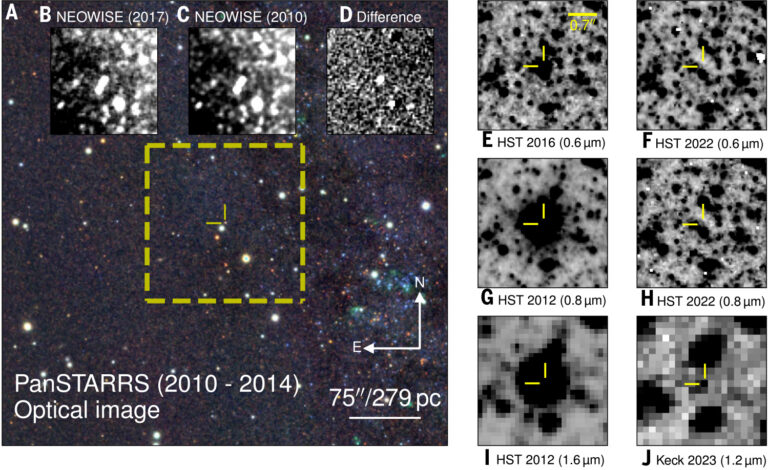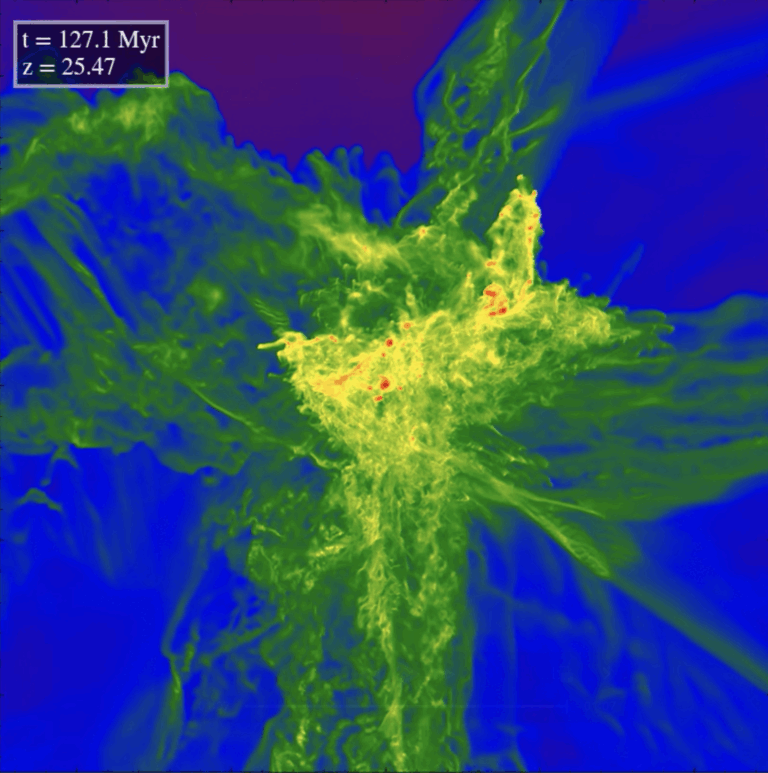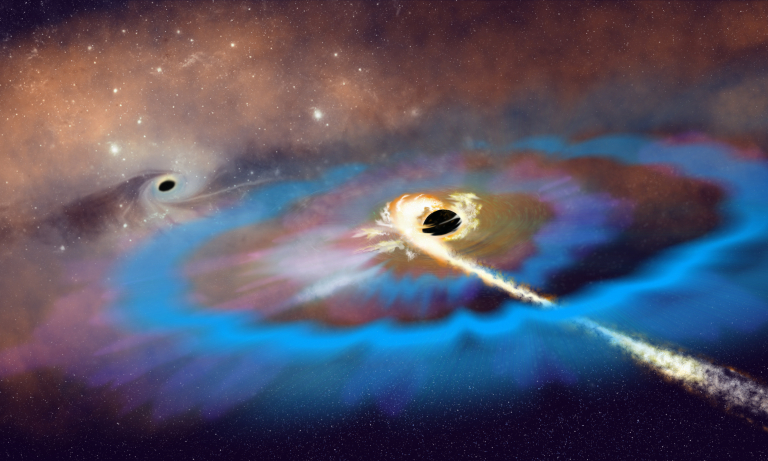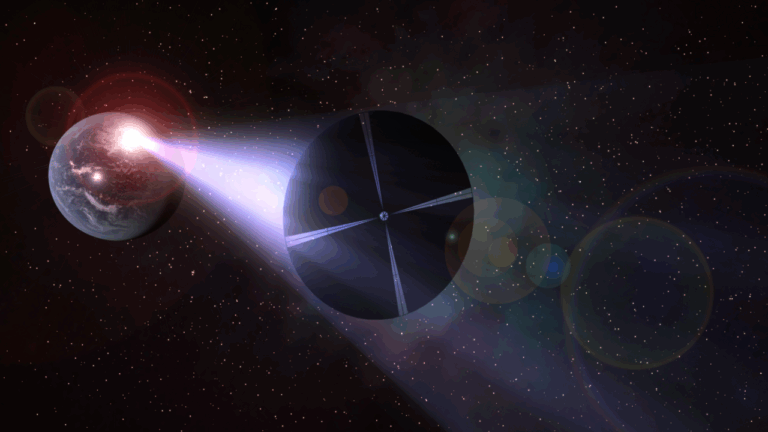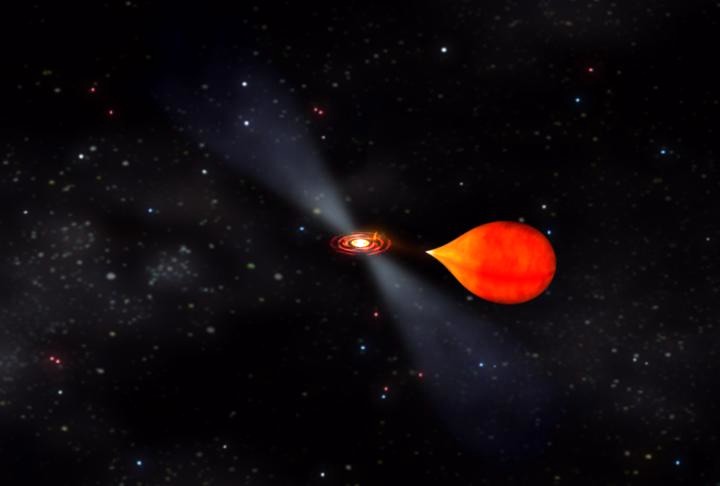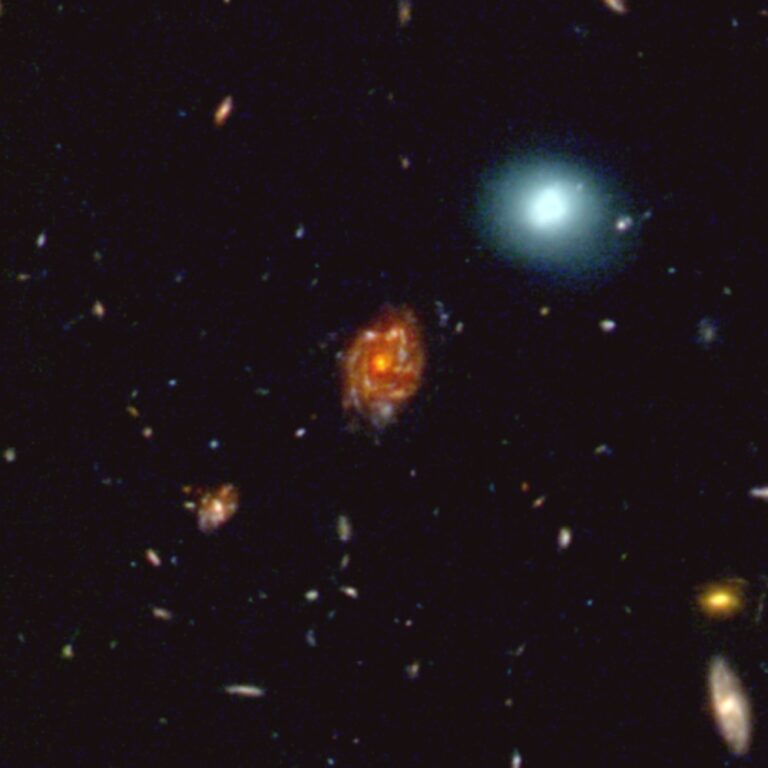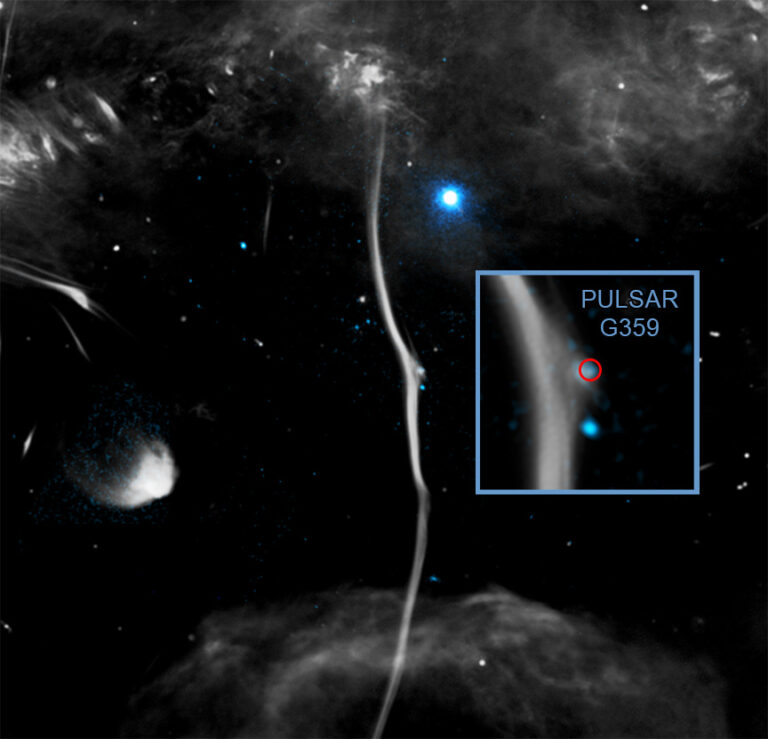An object crossing a black hole’s event horizon, the point of no return, will simply pass through from its own perspective, unaffected by time dilation. However, its appearance to outside observers is strongly affected by the black hole’s presence. Light signals sent from the object at even time intervals (from the object’s perspective) will be received further and further apart in time as the object approaches the event horizon. The strong gravitational field near the event horizon curves space, increasing the distance light must travel to reach the observer. The curvature and distance to the observer — and hence the signal’s travel time — approach infinity at the event horizon, so an outside observer will never see an object actually fall into a black hole. The object instead will appear to freeze at the event horizon.
This effect motivated the original name of “frozen stars” for the object left behind after the total collapse of a massive star. Astronomers thought that light from the last parts of the star to collapse would forever be seen emanating from just outside the newly formed event horizon. The term black hole came from the recognition that the wavelength of light is also stretched near the event horizon. The light coming from close to the event horizon becomes so stretched (“redshifted”) that it is rendered unobservable. So, while material does appear to freeze as it approaches an event horizon, it simultaneously disappears. A collapsed star should rapidly fade from view, and what’s left behind is appropriately called a black hole.
Jason Dexter
Max Planck Institute
Garching, Germany
Max Planck Institute
Garching, Germany


